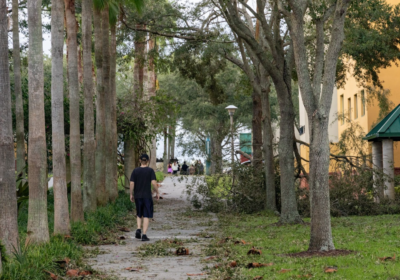College provides more than just an education
Weve heard it time and time again: Without a college degree in todays world, it is impossible to land a
good job.
But college is about more than a job or a degree. It is an opportunity to network, and a hub of resources and new information.
For those who dont know what to do after high school, college is the perfect option.
Though not an investment that all can easily afford, the university resources from which students can benefit outweigh the cost of tuition. An ample amount of scholarships, grants and loans are available for those willing to put in a little extra work.
Universities offer resources thatstudents would have difficulty accessing in any other environment. These are essential to helping high school graduates orient themselves in the real world: Career and financial advice,engagement in the community and living on ones own while still having a support system.
Furthermore, students canparticipate in programs tailored specifically to college students, such as medical or political internships and research.
Hands-on experiences like these open doors to networking and finding mentors, and they put real careers into perspective. How could one know for sure if his or her future career was in election campaigning, nursing, journalism or geology, without trying them out?
Study abroad opportunities also allow students to gain new and unique perspectives about the world through programs that otherwise may not be accessible to them. As a student, scholarships are available that can make a trip abroad truly affordable.
In college, students can takeclasses on any subject they like, including ones that they never knew existed. Fantastic archaeology? Music culture sex, drugs, rock n roll? How about the religion of J.R.R. Tolkien?
Working at Pizza Hut and playing video games probably wouldnt spark the same kind of inspiration as reading The Hobbit from a new perspective.
Knowledge from all of these sources can be a key contributing factor for a student who begins his or her university experience clueless about the future. It is only through hands-on experience, exposure and learning that one canfigure out the best trajectory for life.
And the benefits of campus culture goes beyond real-life transitions.
Through student organizations,participants practice leading, socializing and meeting others social skills essential for success outside of school and can form some of the most important relationships in students lives.
Art, music and theatre surround the campus community, and sportsengagement is possible on a leveldifferent from outside the university.
The years spent as an undergraduate should be seen as an important period in ones life, not just a time of transit. For the opportunity to grow and learn with peers while accessing countless resources and learning from mentors, the college experience is well worth the time and debt.
Hannah Feig is a senior majoring in chemistry and anthropology.






